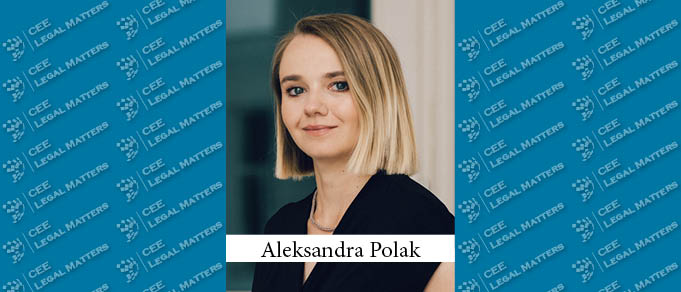ESG, compliance, laws incentivizing companies to run their offices in Poland, and the tax "Polish Deal" are among the most debated legislative issues in the country, says B2RLaw Partner Aleksandra Polak.
"ESG is a large and growing topic in Poland, especially concerning listed companies and financial institutions," Polak begins. "They will be obliged to provide non-financial reporting, which is a complex process requiring extensive guidelines. Interestingly, Poland has implemented ESG regulations to accounting laws only. On the one hand, we have a list of entities obliged to provide non-financial reporting, but in order to fulfill these obligations, these companies will start asking ESG questions of their own clients and service providers." According to her, "the ESG will have a snowball effect, and will actually impact many more companies than just those directly obliged to provide non-financial reporting." As such, companies that are able to quickly adapt to these new regulations will have a significant competitive advantage, Polak notes.
"Another important legislative update is related to whistleblowing," she explains. "In many countries, such laws were adopted quite some time ago, but in Poland, a draft law on the protection of persons who report breaches of law was only published in October 2021." According to Polak, one "could argue that the Polish draft legislator was ‘creative’ as it imposes liability for non-compliance with whistleblowing requirements, including criminal one, triggering the vested interest of many companies in whistleblowing laws. The draft legislation is still highly debated, but in general, Poland is seeing heightened activity in compliance issues these days."
"VC and startups are also hot topics in Poland," Polak continues. According to her, "many foreign investors are interested in Polish startups. In addition, there is a new type of company in Poland, referred to as a 'simple joint-stock company.' It’s most suited for VC investors and startups. The traditional structure made it difficult for companies to be VC compliant, while the new system offers a more common-law style format for company management and liquidation." Polak says that this is likely to lead to an increased interest of foreign companies to invest in Poland.
Polak additionally highlights new incentives for companies to operate from Poland. "We will have a new holding law, aimed at attracting investors in Poland, as well as encouraging Polish companies to have a holding entity in Poland. The companies will be treated as one entity, enjoying certain tax benefits. It also simplifies subsidiary company management," she points out.
Finally, Polak points to a "new tax reform known as the 'Polish Deal,' that has caused major controversy and political and economic tensions latterly." According to her, "the intention of the law was to have a more progressive tax system and to impose higher taxes on high-income people. However, the problem is that the law has not been implemented in a structured, organized manner." However, "new amendments are adopted very frequently, leading to a lot of instability, keeping lawyers and tax advisors very busy in trying to keep up with the changes. It also seems that the reform has imposed its highest burden on the middle class (as opposed to the wealthy), therefore, leading many to believe that the reform might not have achieved its intended results."

























